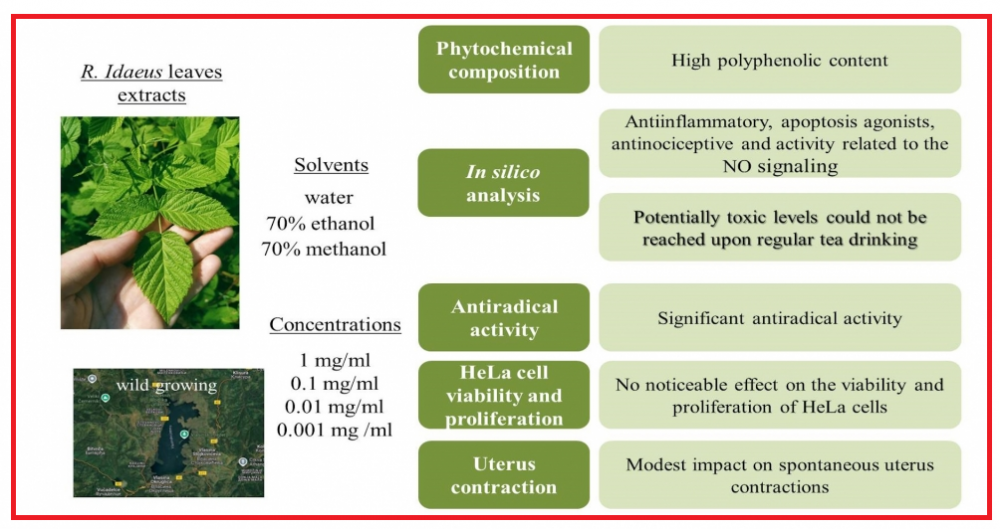JOURNAL 3352
Records of Natural Products
Available Online: January 22,2025
p.1 - 15
http://doi.org/10.25135/rnp.493.2410.3352 (DOI number will be activated after the manuscript has been available in an issue.)
Viewed 1171 times.
GRAPHICAL ABSTRACT

ABSTRACT
The consumption of raspberry (Rubus idaeus L.) leaves has a long tradition, especially as a "general pregnancy tea", although the scientific data are insufficient and contradictory. Phytochemical comparation of extracts from cultivated and wild raspberry leaves, in silico prediction of their biological activities and acute toxicity followed by in vitro antiradical activity and effects on the viability/proliferation of HeLa cells and isolated rat uterus were performed. Leaves from cultured (v. Polka) and wild individuals were extracted with distilled water, 70% v/v ethanol or 70% v/v methanol. All samples exhibited high polyphenol content and antiradical activity, with the 70% v/v ethanol extract of wild R. idaeus showing the strongest free radical scavenging ability. In silico analyzes predicted that a large number of raspberry leaves possess anti-inflammatory, apoptosis-agonistic, antinociceptive and NO signaling-related activities. Potentially toxic levels of the tested compounds could not be achieved with regular tea drinking. The tested extracts have no noticeable effects on the viability/proliferation of HeLa cells. The effects on spontaneous contraction of the isolated rat uterus were modest. Although safety is not a concern, further studies are needed to justify or deny the efficacy of raspberry leaf tea in folk medicine for healthy pregnancy and easy delivery.
KEYWORDS- R. idaeus L.
- leaves extracts
- phytochemical comparation
- in silico prediction
- HeLa cell viability/proliferation
- uterus contraction